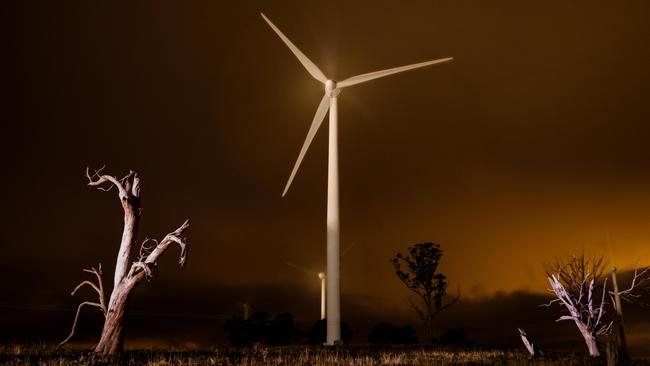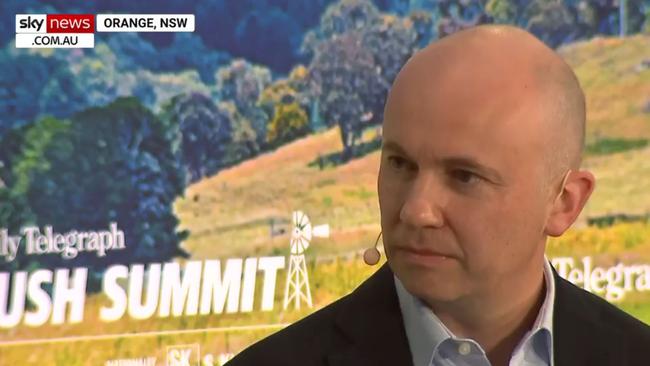Vikki Campion: The fiery pits of hell are powered by wind farms
Climate business has worked out how to sell the catastrophe ticket: Earth is going to hell if you don’t do as we say. But, Vikki Campion writes, let’s look at facts over hyperbole.
Opinion
Don't miss out on the headlines from Opinion. Followed categories will be added to My News.
Earth was once a barren hellish ball of lava and, in the future, will return to a lifeless hellish orb spinning aimlessly through the universe.
If Earth were closer to the sun, we would fry and be dead; further from the sun, we would freeze. If Earth rotated quicker, we would die, and if it spun slower, we would freeze or cook, and die.
It is so easy to instil fear, for it to be the mechanism, the allegory for hell: You are going back to the inferno unless you do what I say.
The art of preying on impending catastrophes like death and hell will always resonate with those who cherish life, which is most of us.
If you can package up the fear and sell the terrified a life raft, you have a ticket to wealth beyond your wildest dreams.
And climate business has worked out just how to package and sell the catastrophe ticket.
Our ticket so far is costing us $7 billion a year in intermittent power subsidies to save us from this proclaimed impending doom.

Our ticket costs us land we will never get back — it’s why they can justify knocking down pristine bush for wind factories and building black photovoltaics over prime agricultural land.
You have to give the climate business tsars 10 out of 10 for schmoozing, though, and Matt Kean has found a new home in this field of work as the government-appointed apologist for why we must prostrate ourselves at the altar of intermittent power.
Mr Kean repeatedly urged The Daily Telegraph Bush Summit audience to “trust the experts” this week.
Like the experts who banned us from National Parks during Covid?
The Covid salvation from annihilation ticket was another hundreds of billions of dollars purchased by the taxpayer to the delight of some rather large pharmaceutical companies.
You can’t deny that Covid can kill people — viruses can do that — but, in retrospect, would you spend all that money and turn people’s lives upside down again for it?
The virus is still with us, still mutating, so if we were still on the calamity train, we should be locked up in our flat.

Informed observers such as engineer Ben Beattie of the Baseload Podcast were quick to point out Mr Kean’s assertions at the summit were incorrect: AEMO and CSIRO do not say a high renewables system is cheapest; they say it’s cheapest to “meet the targets”.
A big difference.
There are far more intermittent power projects being pursued by developers than the proposed transmission lines would even accommodate, with ghost projects built and unconnected to the grid — yet we are being told to trust these experts?
Experts who have no integrated development plan to combine the intermittent power generation and transmission infrastructure to get power from where it is being generated part-time in the bush to the city where it is consumed full-time?
But it is to save the world, of course, and that comes at a price which is outrageous and rising in every power bill you get — but what price is too high to avoid hell?
China, India and many parts of the world are playing the game of saying all the right things — empathy for the fear — then completely ignoring it and carrying on as usual.
If you want zero-emission electrons, it must come from the star power, nuclear, to which Kean’s get-out-of jail retort was it would somehow take 20 years to build.
It’s building a power plant, not growing an oak tree to maturity. Other countries do it in three.
Just like we didn’t save the world from Covid, we aren’t going to change the global climate by buying a multi-trillion dollar calamity ticket from billionaires and multinationals.
The sale of the salvation from annihilation ticket right now comes with the price of environmental destruction from the wind farms, he transmission lines, the hectares of photovoltaics, the division of communities, the compromising of agriculture, and a power grid that is unreliable and unaffordable.
Do you have a story for The Daily Telegraph? Message 0481 056 618 or email tips@dailytelegraph.com.au





